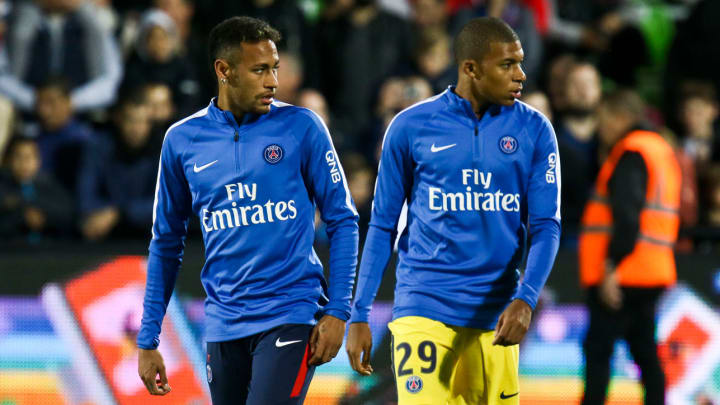Rival UCL Club Executive: PSG's Mbappe Loan Move to Circumvent FFP is 'a Joke'

With the Champions League group stage starting on Tuesday and Paris Saint-Germain in action against Celtic, one of the big talking points is the future of UEFA’s Financial Fair Play rules. UEFA announced recently that it was opening a real-time investigation through next June 30 into possible violations of FFP rules by PSG in their acquisitions of Neymar and Kylian Mbappé.
One executive from a rival Champions League club tells SI.com the loan deal for Mbappé to circumvent FFP rules is “a joke” that is “almost insulting to the system.” He added that he didn’t see how PSG could stay within FFP rules—even by selling more players—after the acquisitions of Neymar (€222 million) and Mbappé (a reported €180 million next summer).
Source: Sounders Fear Morris Will Miss Rest of Regular Season, USMNT Qualifiers
The most severe penalty UEFA could place on PSG would be to ban the club from the 2018-19 Champions League. The rival executive said he thinks that could happen, but it would likely open a can of worms that could include PSG challenging UEFA in the Court of Arbitration for Sport.
In the big picture, the challenge for UEFA with Financial Fair Play is that it wants more clubs to be competitive in Champions League and have a chance to win, but it doesn’t want the excessive spending from clubs like PSG, Man City–and recently AC Milan–that could close the gap.
Neymar, Mbappe Add Serious Clout to PSG, but is it Ready to Conquer Europe?
One Champions League club executive said that FFP has worked well in many ways, reducing losses in the European game from €2 billion to €200 million. But he said the problem now is that FFP only entrenches the biggest powers that already have the highest revenues.
The executive is hoping that reforms are introduced through the European Commission that could include NBA-style salary caps and luxury taxes, as well as the ability for wealthy owners to invest more in their clubs without having to connect that to club revenues, as is the case today.

A leading soccer journalist and best-selling author, Grant Wahl has been with SI since 1996 and has penned more than three dozen cover stories.